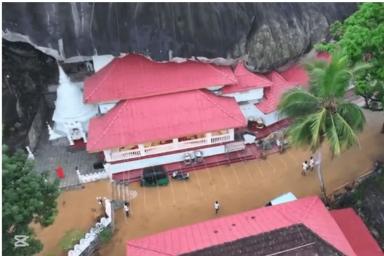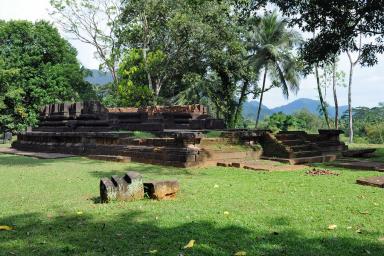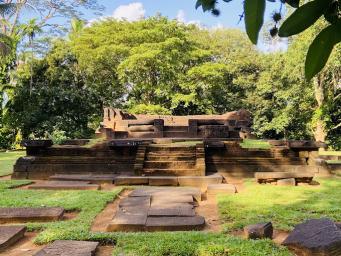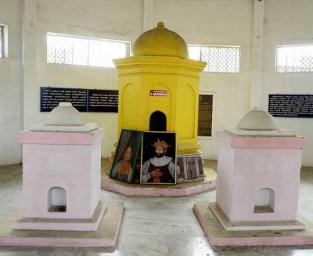Artículos por etiqueta western province

Tallado en una enorme cueva de roca a solo 4 km de Avissawella, el Maniyangama Raja Maha Viharaya es un testimonio de la resiliencia de Sri Lanka. Destruido por invasores portugueses y luego restaurado por el rey Kirthi Sri Rajasinha (1747–1782 d.C.), este templo combina armoniosamente el arte budista e hindú, presentando murales raros, un Buda reclinado e incluso una imagen de Vishnu.

Hidden in the misty foothills of Dehiowita, the ruins of Seethawaka Palace stand as a silent witness to one of Sri Lanka’s most defiant kingdoms. Established in 1511 CE by King Mayadunne, this was the epicenter of the Seethawaka Kingdom—a short-lived but fierce resistance against Portuguese colonization. Later expanded by his son, the legendary King Rajasinha I, the palace’s strategic location between the Yakatuwa Mountains and Koboturawa Rock made it a natural fortress.

Tucked away in Maniyangama, just 2 km from Avissawella, the Berendi Kovil stands as a testament to Sri Lanka’s rich religious and political history. Built under the patronage of King Rajasinha I of Sitawaka after his dramatic conversion to Hinduism, this ancient temple ruins whisper tales of faith, power, and cultural fusion.

Hidden in the quiet village of Gurugalla, Dehiowita, the Tomb of Seethawaka Rajasinha I stands as a solemn reminder of one of Sri Lanka’s fiercest kings. Known for his relentless battles against Portuguese colonizers in the 16th century, King Rajasinha’s legacy is etched into the island’s history. Though the site is in ruins, its historical weight and serene countryside setting make it a poignant stop for history enthusiasts and cultural explorers.
Introducción
Ubicación: Yapahuwa, Sri Lanka
Importancia histórica: El palacio fortificado y la fortaleza de roca del rey Buvanekabahu I (siglo XIII)
Famosa por: La ornamentada escalinata con esculturas de leones que conduce a las ruinas del palacio
The Kurunegala Dalada Maligawa is a historic site that once housed the Sacred Tooth Relic of the Buddha during the Kurunegala Kingdom (13th–14th century). Built during the reign of King Parakramabahu IV (CE 1302–1326), this palace was a significant center for Buddhist rituals and royal administration.

